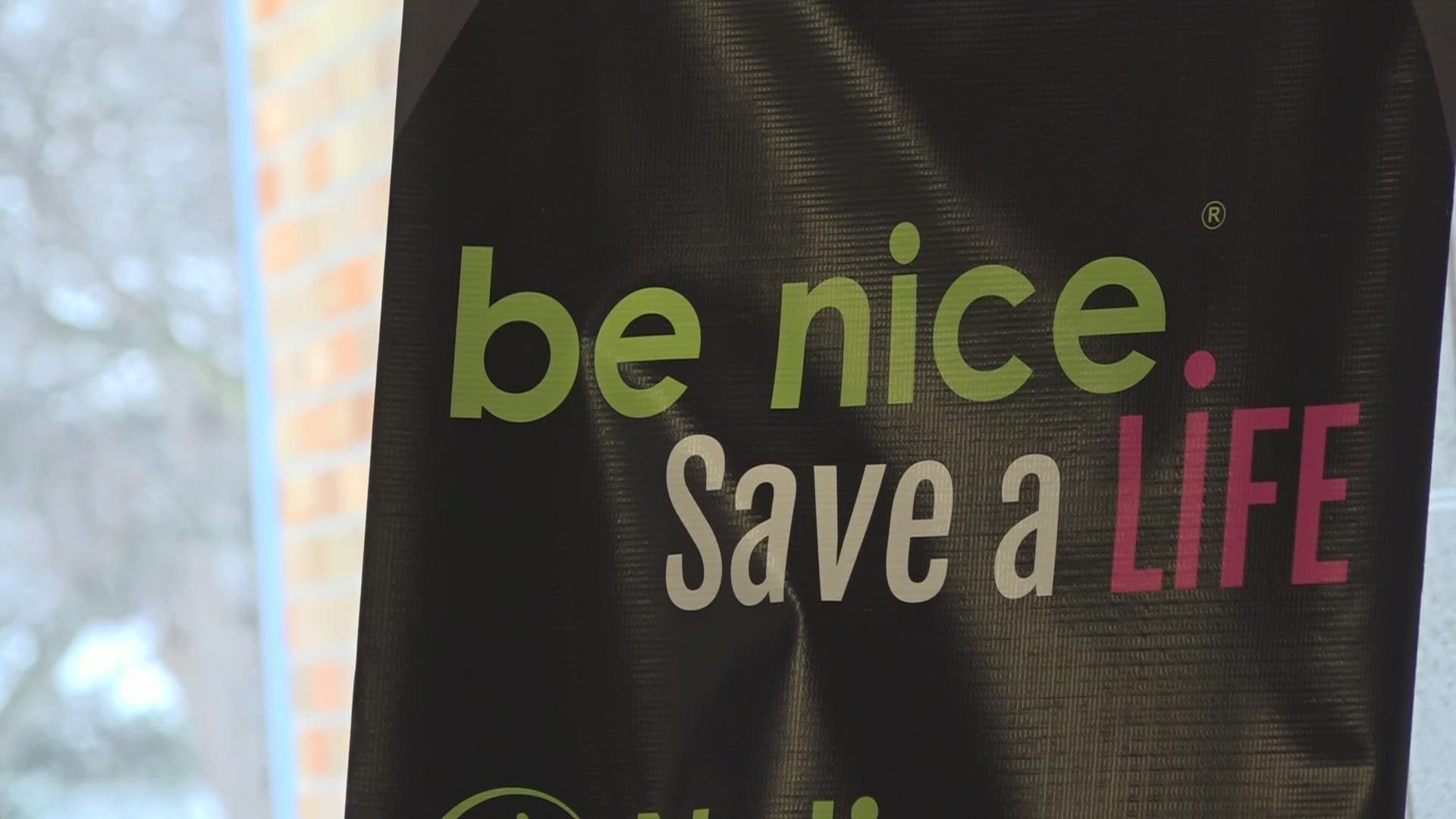GRAND RAPIDS, Mich. — Earlier this week, we told you about the anonymous donation made to East Grand Rapids Public Schools for $1 million. That money will be used to support the district's mental health resources.
Part of that is training so that staff know what to look for in someone that is struggling.
So what are the signs and symptoms of a mental health crisis?
Be nice is a mental health suicide and prevention education program in Grand Rapids with an action plan that has been proven to save lives.
Christy Buck, the executive director of the program, says to start by noticing changes in a person's behaviors and the risk factors that could be impacting their day to day.
In general, sadness, anger, difficulty concentrating, overeating or lack of eating are some behavioral changes to look for.
Risk factors include physical injuries, harassment and a family history of illness. Other risk factors could be financial stress, pressure at home, school or work.
"Sometimes people want to relate it to one thing, but it's many things," Buck said. "But then I want to look for changes in their behavior for two weeks or longer. And those are changes in their ability and how they are going to school going to work carrying out their daily activities, and engaging and satisfying relationships."
Experts say if you notice these changes, turn to that person and start a conversation with them. Say something like, "I noticed recently you haven't been coming to work on time. Is everything okay?"
Ask them to go out for a cup of coffee and show that you are concerned and that you care.
Additionally, if you provide someone with a mental health resource like a phone number to a therapist or a website, follow up with them to see if they reached out.
►Make it easy to keep up to date with more stories like this. Download the 13 ON YOUR SIDE app now.
Have a news tip? Email news@13onyourside.com, visit our Facebook page or Twitter. Subscribe to our YouTube channel.

